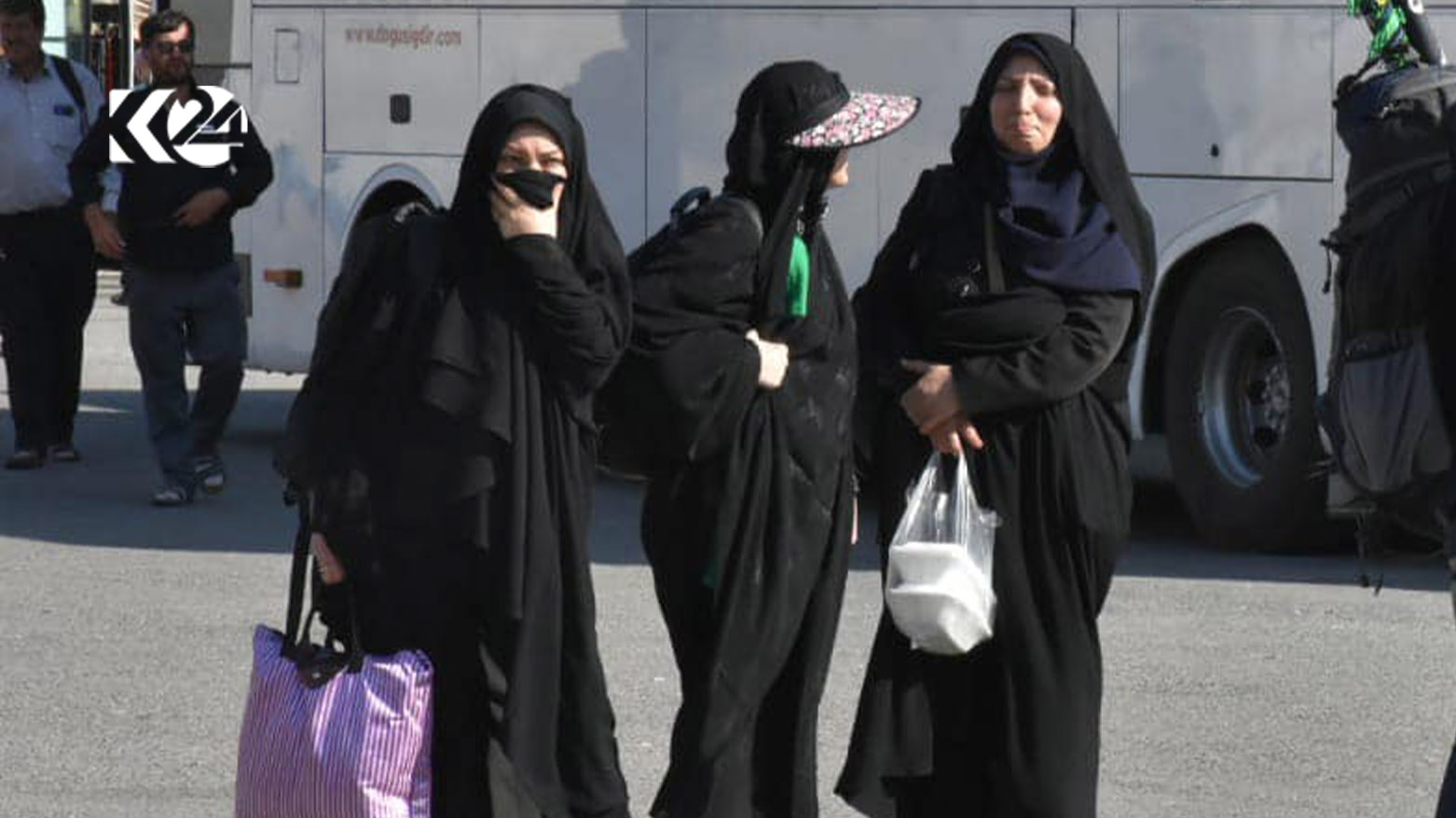Over 122,000 Shia pilgrims have visited Najaf and Karbala from Haji Omaran

ERBIL (Kurdistan 24) – 122,556 Shia pilgrims have visited Najaf and Karbala from the Haji Omaran border crossing over the past 23 days, according to the Iraqi High Committee for the Arbaeen Pilgrimage.
To accommodate the pilgrims, four rest stations have been established in the Kurdistan Region in order to provide public services and necessities to pilgrims. These stations are operated and supervised by several teams and staff members of the Barzani Charity Foundation.
Haji Omaran has served as a border crossing for pilgrims from a number of countries, including Iran, Azerbaijan, Russia, Georgia, and Kazakhstan.
The committee also stated that joint emergency teams were deployed 24 hours a day in all districts and provinces. A total of 6,366 pilgrims visited Kurdistan Region health centers and received medical treatment.
Iran's Consul General in Erbil Nasrollah Rashnoudi announced on Aug. 26 in a press conference that Iranian pilgrims in Iraq celebrating Arbaeen received the best assistance from the Kurdistan Regional Government (KRG).
Read More: Shia pilgrims received best assistance from KRG: Iranian envoy in Erbil
Observed forty days after Ashura, Arbaeen is a major Shia religious holiday.
Arbaeen commemorates the life and martyrdom of Imam Hussein, who was the grandson of the Prophet Muhammad and a central figure in Shia Islam.
Shia Muslims believe Imam Hussein and his 71 followers were killed by the army of Ubayd Allah ibn Ziyad in the year 680 CE in Karbala, Iraq, making the city an annual destination for more than 20 million Shia pilgrims annually.
